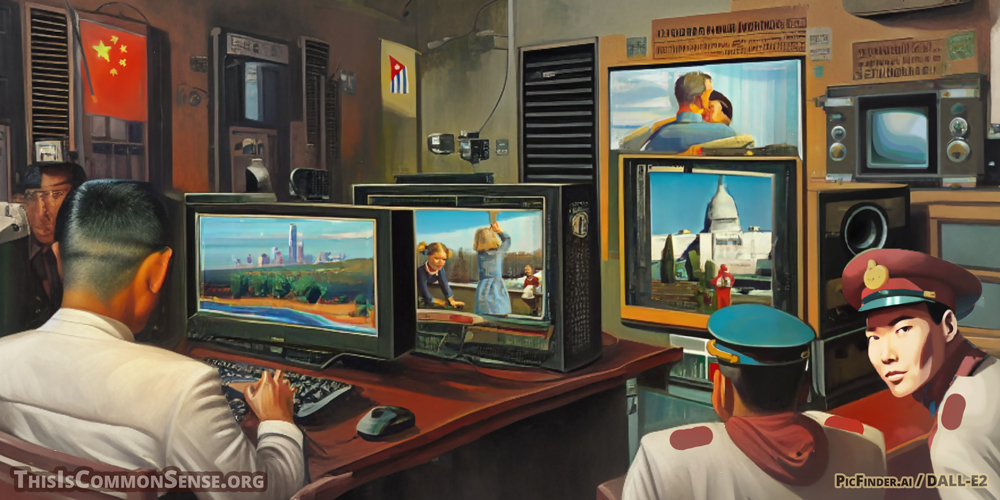Very soon, maybe, the Chinese government will be able to peruse secret military and other electronic missives being transmitted “throughout the southeastern U.S., where many military bases are located, and monitor U.S. ship traffic,” according to a Wall Street Journal story.
Under an until-now secret agreement between China and Cuba, Cuba will charge China a mere several billion dollars for Cuba’s permission to build the eavesdropping station on Cuban territory.
If cited intelligence is accurate, the planned station would enable China to spy on emails, phone calls, satellite transmissions, and other communications. The data thus scooped up would probably facilitate China-sponsored cyberwarfare and other sabotage, as well as its pursuit of overseas Chinese nationals that the Chinese government wants to keep trapped in China.
Craig Singleton, an analyst for the think tank Foundation for Defense of Democracies, says that moving to establish the spy facility “signals a new, escalatory phase in China’s broader defense strategy. The selection of Cuba is also intentionally provocative.”
Perhaps the publicity about the spy station will help to stop it from happening.
John Kirby, a National Security Council spokesman, told the Journal that its story is “inaccurate” without spelling out the inaccuracies. He also said that the U.S. is taking steps to counter Chinese development of such spy infrastructure. “We remain confident that we are able to meet all our security commitments at home and in the region.”
I guess we’ll see. Before it’s too late, I hope.
This is Common Sense. I’m Paul Jacob.
Illustration created with PicFinder.ai and DALL-E2
—
See all recent commentary
(simplified and organized)

3 replies on “The Cuban Missive Crisis”
Why should publicity about the spy station stop if from happening? We are already being monitored by spy satellites that orbit the globe and even by our own government. What’s one more spy system?
We’re seeing the dark side of globalization. We facilitated it. We’re getting what we asked for: open societies, open borders, etc. Forget about privacy, on any level.
Notice the lie we were fed: countries that trade with one another won’t go to war with one another. Not true.
How surprising is it that the Chinese would do to us what we have and are doing to them? This is a game which has been going on for as long as there have been nation states with militaries and a willingness to resort to their use. The technologies may be different, but the principle remains the same.
We justify our “observing” others in the same manner in which the Chinese are alleged to be attempting or doing to us by claiming that knowledge of what others (enemies and allies) are doing may allow countermeasures and diplomacy to preserve the peace. It is likely all of our friends and foes use the same justification for these activities.
It has always been my opinion that actual knowledge allows informed preferences of the electorate and therefore should provide the best policy guideposts in our republic.
I am concerned that the cognizance US electorate regarding what their government is actually doing in their name has and continues to be hindered by overclassification of information as secrets which are necessary and critical for their decision-making.
Perhaps the information as to what is actually going on can be discerned and reported more accurately by the various intelligence services (of our enemies and allies) by their doing unto us what we do unto them. If that will provide our electorate better knowledge of what information, policies and actions are being kept from them such might allow the election of representatives persons who will better honor the electorate’s preferences, especially in regard to foreign affairs. Indeed, that might work out better world-wide. We could provide the same service to all others.
In my experience and reading of history it is normally not what is known but what is unknown which increases risk, insecurity and rash actions, the disastrous results of which are visited on the general population, but only rarely the leadership.
A very perspicacious comment!